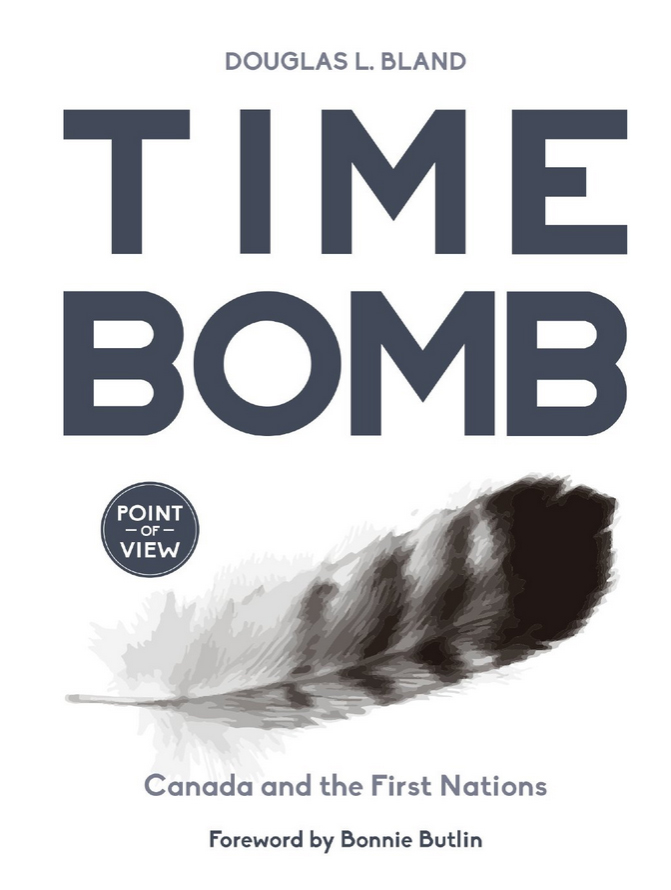Book Review: First Nations not part of the solution
 Reviewed by Christine Smith (McFarlane)
Reviewed by Christine Smith (McFarlane)
“Time Bomb” is essentially a book that represents one point of view and that point of view is of a non-Aboriginal person who writes not in a reconciliatory tone but one of confrontation.
In the preface of the book it is stated that “Time Bomb” is a fact based essay not to be read from a First Nations point of view or as a prediction that an uprising is inevitable. Rather, the study is meant to serve as a barometric warning of stormy day or even catastrophic years ahead for relations between the First Nations people and non Native Canadians.
If this book is not to be read by First Nations people, then why is it written at all? After all, the author is writing about First Nations people.
The central theme of this book is one that puts non-Aboriginal people on one side and Aboriginal people on the other side. In essence-the usual divide and conquer status quo stance that divides our society.
The author Douglas L Bland, states that with Canada’s present policies and the historic indifferences of Canadians towards First Nations peoples, an insurgency or civil war will happen. Bland argues that if the aspirations of First Nations peoples continue without amendment and if First Nations leaders continue to assert their right to sovereignty in Canada, than a confrontation between the two cultures is unavoidable. The critical questions he asks for both societies in such circumstances are: “what form would such a confrontation take, and how widespread would it become?”
On one hand Bland states that “it is overtly strange that Canadians today should find themselves in such a situation,” because he describes Canada as being a country that is respected worldwide for its tolerance and peacefulness. Then he goes onto write that “Canada is rightly acknowledged as a welcoming country for refugees from every region on earth; as a nation of peacekeepers and peacemakers; as the adversary of dictators and tyrants; and as a bastion of human rights.”
The above statement is problematic in itself because even Bland suggests that if this was true, “then why is it that thousands of First Nations people in Canada live in poverty, fill our prisons and obviously, are not equal before the law?”
Bland discusses fractionalization as a major contributor to the feasibility of an insurgency happening between First Nations people and non-Aboriginal people. He argues that in Canada, there are three major issues that define fractionalization between First Nations people and other Canadians. These are Canada’s failure to complete or honour land claims and treaties and social and economic grievances.
Time Bomb is written as though there will be a civil war breaking out any day between First Nations and non-Native Canadians. It describes how a nationwide insurgency would unfold; how the usual police and military reactions to First Nations protests would only worsen things and how, on the other hand, there are innovative policies that might diffuse the situation that the author suggests might happen.
He asks Canadians “will we act together to extinguish the threat of a Native uprising or will we fail and suffer the disaster of Canada’s peaceful and orderly society exploding? The problem lies in these questions because the author writes as though we First Nations are the problem and not a part of the solution.
Time Bomb: Canada and the First Nations, written by Douglas L. Bland, published by Dundurn Books 2014. 231 pages. ISBN: 9781459727878


